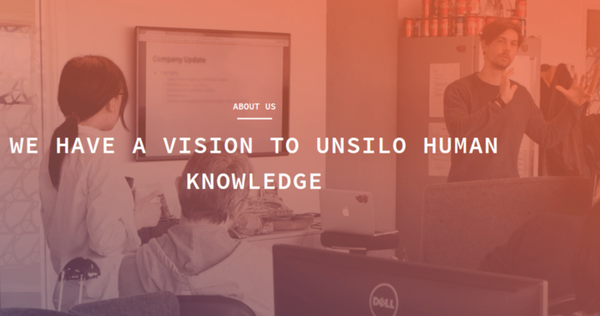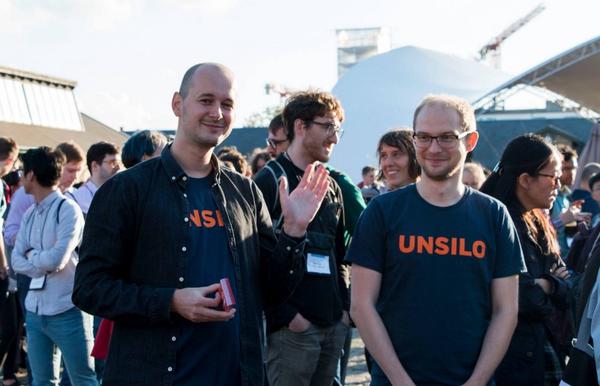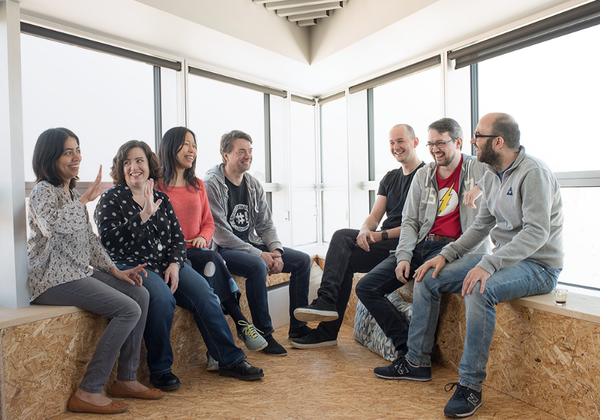“Publishing will become increasingly personalised!”
Interview with AI-Publisher UNSILO

The winner of our Wildcard (international) is the AI-based publishing platform UNSILO from Denmark. It optimises publishing processes with the help of algorithms and machine learning. We were curious and talked to Michael Upshall, Head of Sales & Business Development of UNSILO. Read the interview here.

Head of Sales & Business Development of UNSILO
Head of Sales & Business Development of UNSILO

1. Your company slogan is “rethinking publishing with AI”. Why? This sounds very futuristic.
Well, publishing is changing more fundamentally today than ever before. During the past hundred years, the activity of publishing has changed remarkably little; publishing became digital, but the processes largely remained the same. An author writes a book or an article, then a publisher revises and corrects their work, and the content is published in a journal or book. But during that period, the scale and complexity of publishing, especially scientific, technical and medical (STM) publishing has increased dramatically. Today, there are 4,000 new scientific articles published every day. In other words, publishing has expanded so dramatically without the underlying processes changing. Much of the outsourcing that publishers used to solve the increase in quantity was simply deferring the problem, since the human input remained similar. Today, no human researcher can keep up with the research in their field; no longer can publishers use the traditional manual methods of editing and mark-up. Instead, publishing requires a rethink of its processes; and AI tools can result in an increase in efficiency and quality for the research and publishing process. There is no need to lose the human touch completely, but many human tasks can be augmented and streamlined using AI tools. UNSILO offers both AI-based techniques and tools as well as an optional human level of configuration to make the most effective use of those tools. UNSILO is based around the analysis of large corpora of text, and publishing — print or digital — is about text. So that sounds like rethinking publishing to me!
Digital publishing is of course more than simply moving the words into a digital format. Readers and researchers discover and consume scientific literature differently since everything became digital on the Internet. For example, they are no longer thinking squarely in terms of journals but more in subjects across content types. And the whole discovery/search process has also changed; we have examples from publishers showing that relatedness is often more important than traditional search.

2. Where is the connection between UNSILO, Siri, Apple and Silicon Valley?
Our co-founder, Mads Rydahl, was formerly product director of Siri, the pioneering voice-recognition company that was bought by Apple. Mads lived for over five years in Silicon Valley, before returning to his native Denmark in 2012 to found UNSILO. So our company has plenty of experience of startup culture and how to understand what users want to do. Just as in Silicon Valley, we have a very international team (over eight nationalities are represented on our staff) and a can-do attitude to solving problems.

3. Can you give me an example of how AI innovates publishing processes?
Every publisher at Frankfurt would like to increase the flexibility of their publishing. This means repurposing their content, for example, creating a custom collection that suits the interests of one client, whether an individual or a corporation or an institution. But creating custom collections is labour-intensive, so that for most publishers, reassembling content by hand is simply not feasible. Search for “aspirin” on the Springer Nature platform, and you get over 81,000 articles and chapters. But of course, just because an article mentions a word does not mean that the whole article is relevant. To search through 81,000 articles so you can discover which of those references are really about aspirin is impossible for a human, while using machine-learning and NLP tools, as UNSILO does, an automated system can create a relevant collection like this in seconds.
We use this process to create the Nano Nature portal for Springer Nature. On a continuous basis, we trawl the output of the world’s scholarly literature to extract only those articles relating to nano-related topics — which could be just one or two articles from each issue of a journal. The entire selection process is done in seconds, with the Nano Nature portal up to date within 24 hours of article initial publication. For a researcher, this means they only need to look on one place for their content. For the publisher, this portal site would simply not be possible without the AI tools provided by UNSILO.
4. How do you see the publishing industry during the next five years?
As publishers realise the possibilities of AI and machine-learning tools, there will be a steadily increasing portion of the academic workflow that is handled by automatic tools, with humans able to focus on the truly creative publishing tasks. We can expect to see automatic manuscript evaluation and quality control, and real-time tools that reduce the delay between completing an article and full publication dramatically.
Creating subject collections across content types is now simple to achieve. Say you are chemistry publisher and you want to create a collection of just the oil- and gas-related content from your chemistry journals. No need to do it by hand — we have an automated tool that can do the job in seconds, with the option of human checking if you wish. So increasingly, “publishing” will become increasingly personalised to specific requirements.

5. This is your first time at Frankfurter Buchmesse — what do you expect?
Actually most of us at UNSILO have been to the Frankfurter Buchmesse before, some of us for many years, but as visitors rather than exhibitors. It’s one thing to walk around the stands and quite another to be able to present this new technology on a large scale. This year we have a story to tell, and the stand will give us the opportunity for a dialogue with publishers and content owners. Of course every year at Frankfurt there are new companies, new publishers, new ideas, but it isn’t every year that new technology challenges fundamental assumptions about the publishing and discovery process. Even the introduction of XML during the last 30 years represents far less of a transformation than the introduction of AI tools.
So we are looking forward to exciting discussions, heated arguments, people telling us that using machines to facilitate publishing will mean the end of publishing as we know it — and we would love to talk to them, to show them what machines can (and can’t) achieve, all in all to create a dialogue with the Frankfurt public. The Frankfurter Buchmesse has the biggest and best group of publishing professionals of any event in the western world, and it will be very exciting to be part of it. We are very grateful to the Buchmesse team for the opportunity to be present there.
Thank you very much for talking to us, Mr. Upshall!
Frankfurt, 9. July 2018
Interview by Frank Krings, PR Manager Frankfurter Buchmesse
